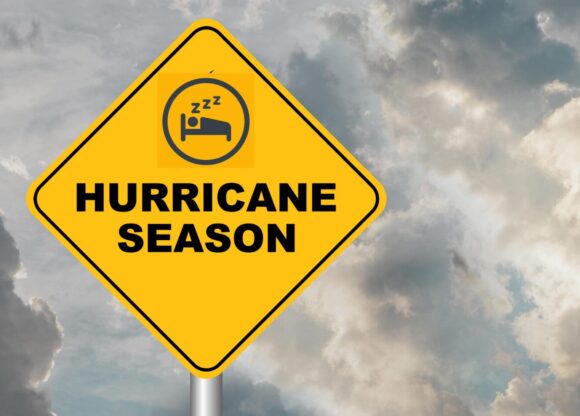A weather forecasting organization is offering up five reasons why the U.S. wasn’t hit by a hurricane this season, despite forecasts that called for an above normal Atlantic hurricane season with numerous anticipated landfalls.
It will be the first Atlantic hurricane season in 10 years without a hurricane making landfall in the U.S. if the season ends without a strike. The Atlantic hurricane season officially comes to an end on Nov. 30. AccuWeather puts the chance of a landfall this season at less than 5%.
“The U.S. benefited from a combination of unique atmospheric conditions, the timing of cold fronts pushing across the East Coast, and a lot of luck, to make it through the peak of the season without a single hurricane landfall,” Jonathan Porter, AccuWeather chief meteorologist, stated.
According to AccuWeather, strong dips in the jet stream over the eastern half of the nation, the presence of dry air and disruptive wind shear prevented hurricanes from making landfall along the Atlantic or Gulf coast.
Related: Florida Meteorologist Predicted Mild Season This Year
The Southeast U.S. was spared from major flooding from Hurricane Imelda in September, thanks in part to the rare Fujiwhara Effect. When storms move within 850 miles of each other, they can essentially start to swirl around each other. The phenomenon is named after Japanese meteorologist Sakuhei Fujiwhara.
The Bermuda High, an area of high pressure that typically forms over the Atlantic Ocean near Bermuda during summer, often steers storms toward the U.S. It was weaker and positioned a farther east, allowing storms to curve around its western edge and head out to sea, according to AccuWeather.
This article initially ran in Insurance Journal’s sister publication, Claims Journal.
Was this article valuable?
Here are more articles you may enjoy.



 A 10-Year Wait for Autonomous Vehicles to Impact Insurers, Says Fitch
A 10-Year Wait for Autonomous Vehicles to Impact Insurers, Says Fitch  ‘Structural Shift’ Occurring in California Surplus Lines
‘Structural Shift’ Occurring in California Surplus Lines  AIG’s Zaffino: Outcomes From AI Use Went From ‘Aspirational’ to ‘Beyond Expectations’
AIG’s Zaffino: Outcomes From AI Use Went From ‘Aspirational’ to ‘Beyond Expectations’  AIG Underwriting Income Up 48% in Q4 on North America Commercial
AIG Underwriting Income Up 48% in Q4 on North America Commercial 

